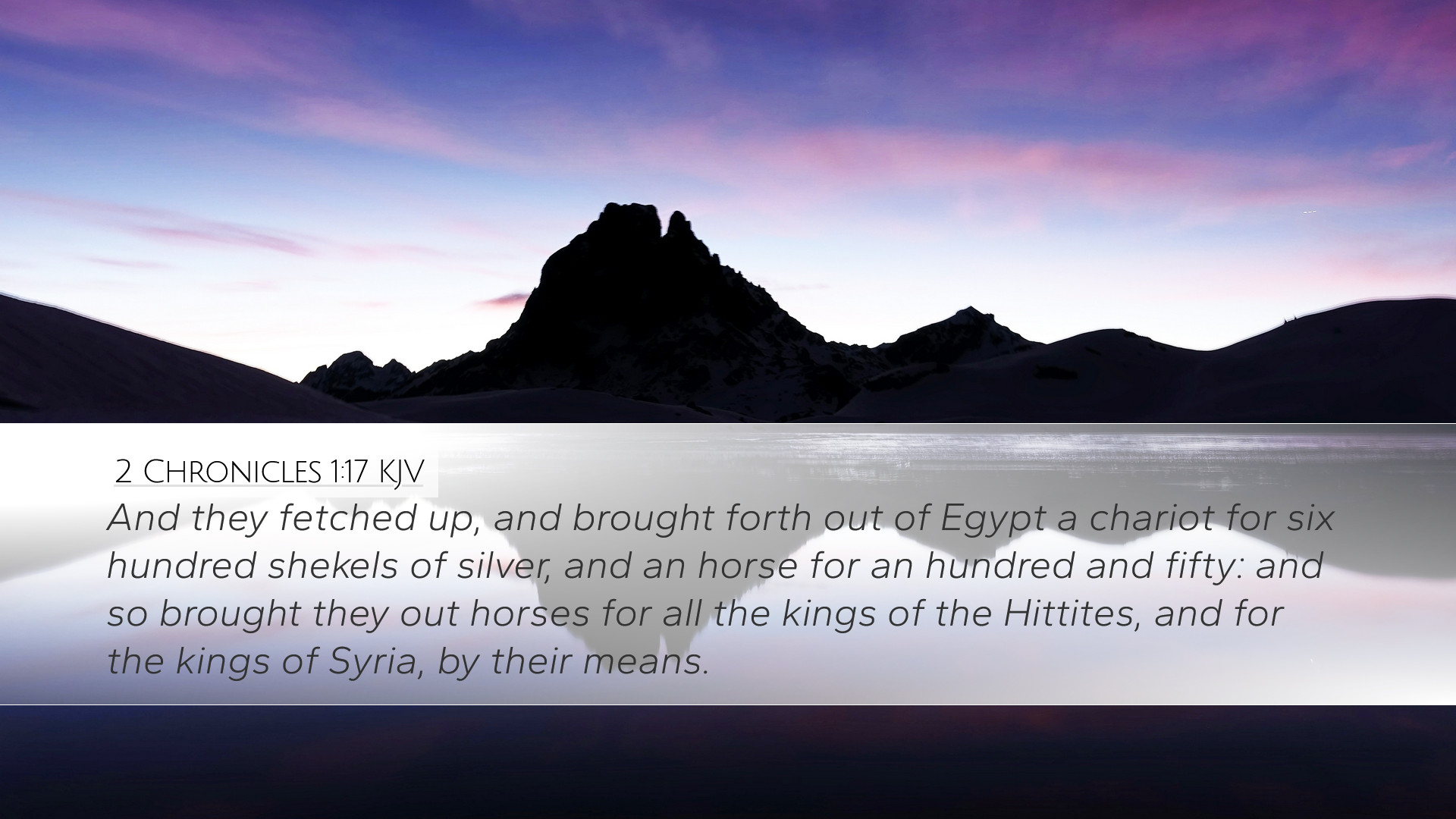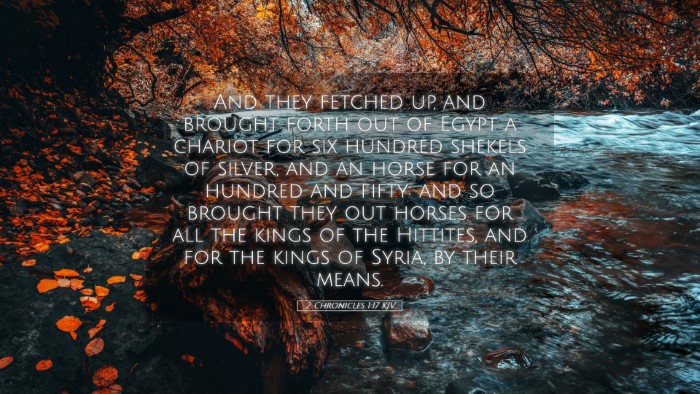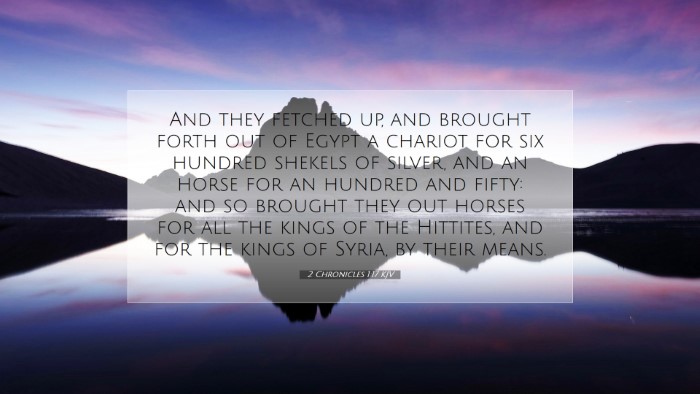Commentary on 2 Chronicles 1:17
2 Chronicles 1:17 states: "And they brought out of Egypt a chariot of six hundred shekels, and a horse for a hundred and fifty."
Contextual Background
This verse is situated within the narrative of King Solomon's reign, specifically focusing on his quest for wisdom and the establishment of Israel's power during his rule. The passage can be understood in light of the historical and cultural context of the ancient Near East, where chariots and horses played a critical role in military might and economic trade.
The Significance of Chariots and Horses
Military Might: Chariots were often emblematic of military strength. The mention of horses and chariots underscores the importance of military resources in Solomon’s era. Commentators like Matthew Henry emphasize that Solomon’s acquisition of these equestrian resources reflects his wisdom in ensuring Israel’s defense and integrity.
Economic Prosperity: The importation of chariots and horses from Egypt may also indicate economic flourishing. Albert Barnes notes that Solomon's prosperous reign allowed him to engage in trade, further solidifying his position both militarily and economically. This strategic move was essential for the security and advancement of Israel.
Divine Provision and Wisdom
The context highlights the divine favor and wisdom bestowed upon Solomon. Adam Clarke points out that Solomon's request for wisdom at Gibeon was rewarded not only with insight but also with tangible assets necessary for ruling effectively. The chariots and horses symbolize the material blessings that accompany divine wisdom.
The Role of Egypt
Egypt represents both historical enmity and alliance for Israel. While the Israelites had a tumultuous history with Egypt, they also engaged in trade. Matthew Henry notes that the resources acquired from Egypt illustrate the transition of Israel from a state of bondage to one of sovereign power. The relationship with Egypt is complex, revealing both danger and opportunity.
Theological Implications
God's Sovereignty: The passage demonstrates God’s sovereignty over nations, using Solomon’s reign to accomplish His purposes. It reminds readers that God can leverage seemingly unfavorable contexts for the good of those who seek Him.
Wisdom in Leadership: The request for wisdom highlights a critical trait for leaders in faith contexts. Solomon exemplifies the importance of seeking divine guidance before seeking material provision. The ultimate takeaway is that true wisdom leads to the right use of resources.
Application for Contemporary Readers
Leadership Styles: Pastors and church leaders can learn from Solomon’s example regarding the necessity of discerning and wise leadership rooted in divine insight. Utilizing resources wisely reflects spiritual maturity and effectiveness in ministry.
Resource Stewardship: The stewardship of resources is a vital theme for today’s Church. As Solomon obtained horses and chariots, modern-day leaders are called to be diligent in managing both spiritual gifts and material resources for kingdom work.
Conclusion
In summary, 2 Chronicles 1:17 points to a pivotal moment in Israel’s history under Solomon's reign, illustrating the intertwining of divine wisdom, economic prosperity, and military strength. By analyzing the insights provided by public domain commentaries, contemporary readers are offered profound reflections on leadership, resource stewardship, and the sovereignty of God. This verse not only serves to recount historical events but also provides enduring principles applicable to faith-driven leadership.


